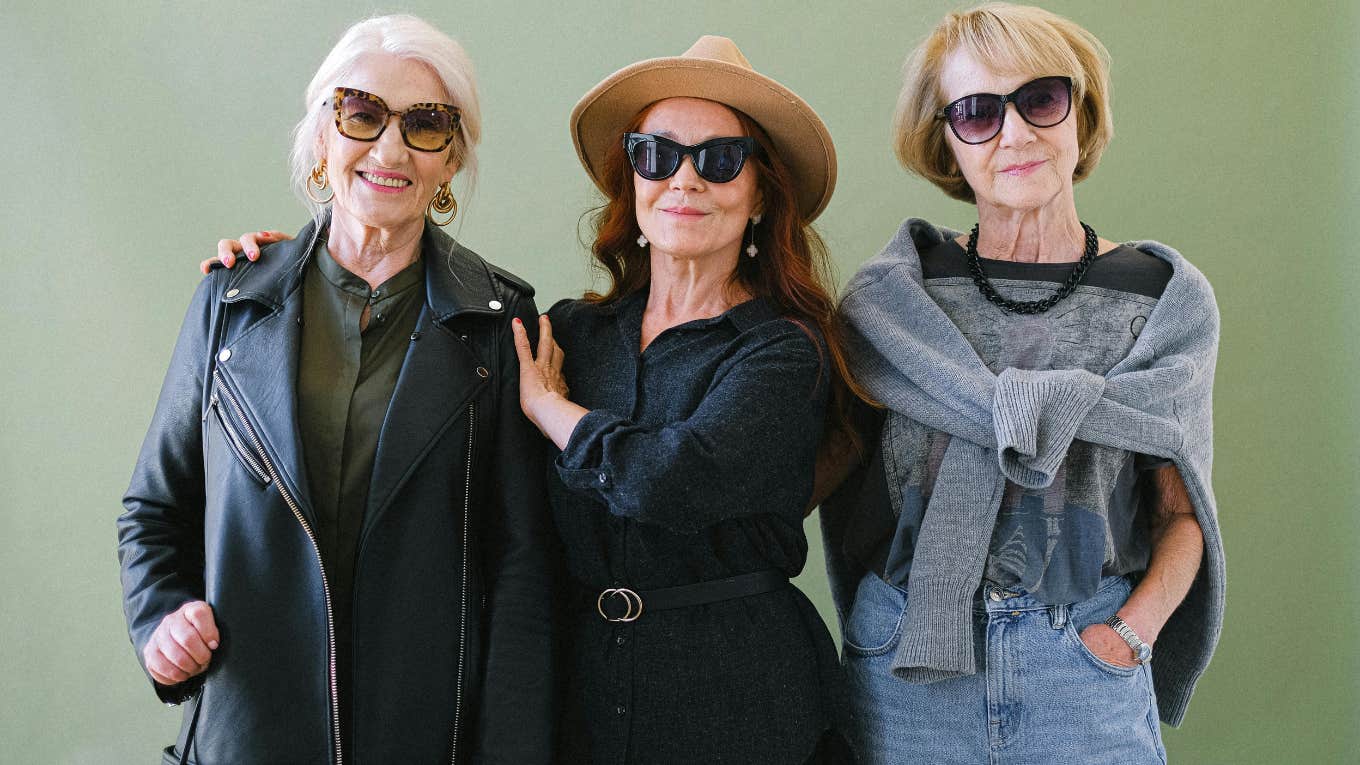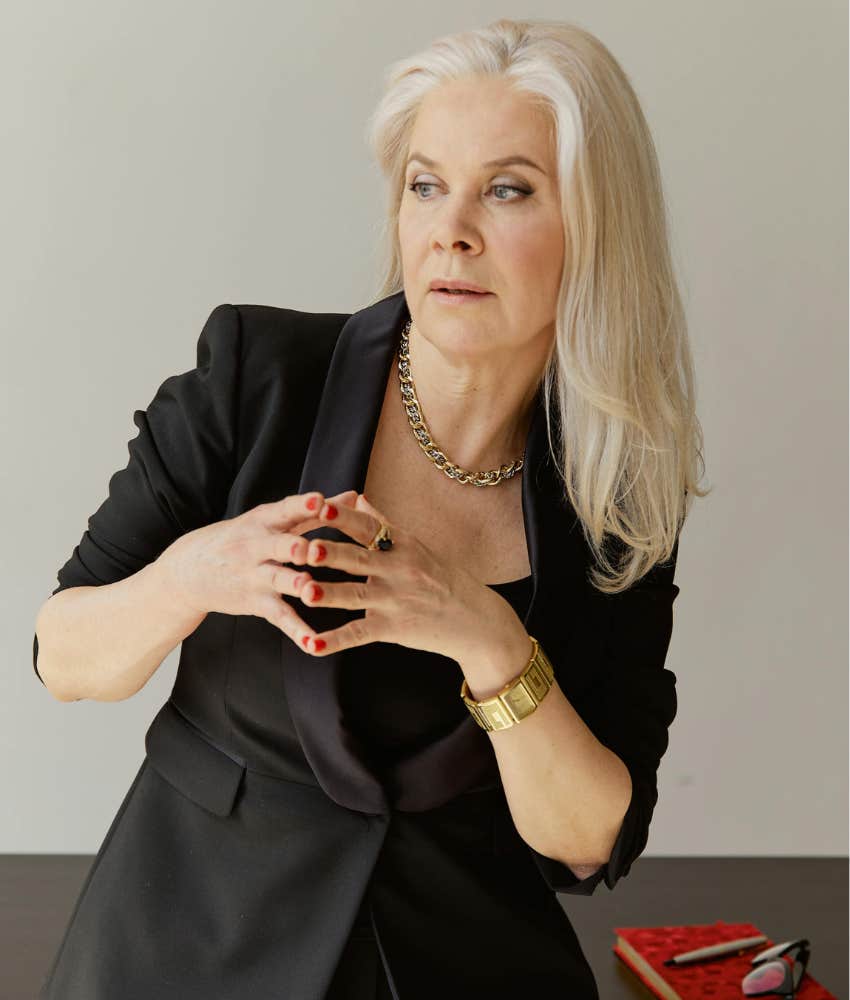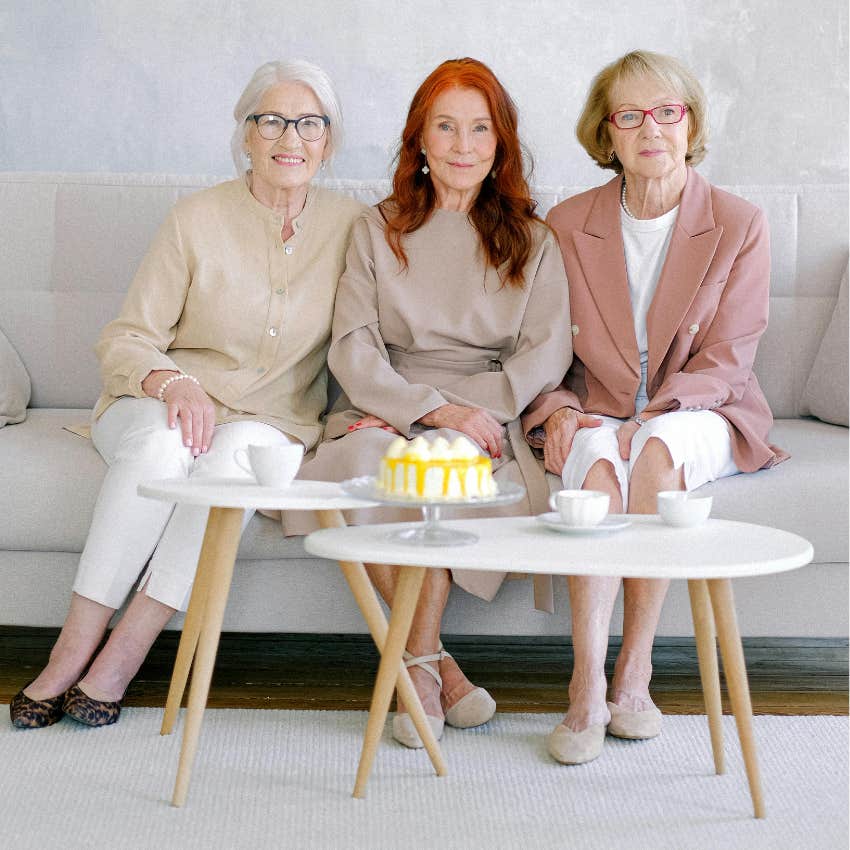Former Matchmaker Shares 3 Things She Wished She Knew About Friendship At 23 Instead Of 53
With age, comes wisdom and clear boundaries.
 Anna Shvets / Pexels
Anna Shvets / Pexels Growing older is often framed as an experience fraught with loss, especially in the U.S., where youth is prized above all else. As we ease from young adulthood to middle age, we experience many bodily changes. We find wrinkles where there weren’t any before. Our hair turns silver. Our backs begin to hurt.
Yet, with age comes wisdom, and no one knows that more than Tamsen Fadal.
The former matchmaker shared 3 things she wished she knew about friendship at 23 instead of 53:
1. Your friend is not your therapist
“This is gonna sound harsh,” Fadal warned before revealing the essential truth that she learned later in life.“Your friend is not your therapist,” she said.
The most important part of life is having strong social networks, made up of people we feel close to, people who make us laugh and lift our spirits, people we can ask for a ride to the airport, knowing all the while that we’d extend ourselves for them, too.
 Darina Belonogova / Pexels
Darina Belonogova / Pexels
There’s no better remedy for feeling low than calling your bestie, but Fadal noted that there are limits to how far friendships can and should go.
“You can totally confide in them, you can lean on them for support when you need them, [and] call them at all hours of the night,” she explained, yet we shouldn't use friends as our emotional dumping grounds.
It’s one thing to vent and a whole other to expect our friends to act as therapists — that is, people paid to sit and listen to our patterns of behavior and inner turmoil.
It’s super important to set and maintain boundaries with even our closest friends. It takes time and energy to support someone who’s in a tough spot. One great way to check in with friends before letting your emotions loose is to simply ask if they’re available to hold space for what you’re feeling.
2. Your friend can’t solve your problems
Fadal’s next piece of guidance connects to her first insight: We can’t use our friends to solve our own issues.
It’s not a therapist’s role to solve anyone’s problems, either. Each person on this earth is responsible for holding themselves accountable.
Expecting other people to solve your problems shifts blame to outside forces. It makes us think that we are not in control of our own happiness and fulfillment.
 Anna Shvets / Pexels
Anna Shvets / Pexels
The reality of being a person who’s in a community with other people means that we have to recognize that we’re the ones driving our own lives.
Our issues are no one else’s but ours. And yes, while our families of origin and patterns of attachment have a huge effect on how we relate to the world around us, at some point, we all have to own up and do the hard, emotional labor of showing up, processing our pasts, and moving forward into our futures.
3. Your friend doesn’t have to be everything to you
Fadal’s final statement was clear and concise: Our friends can’t be everything we need all the time.
Relying too heavily on one person is a clear path to emotional burnout.
While relationship burnout is often discussed in terms of romantic partnerships, it can occur in platonic relationships, too.
Signs that you feel burnt out by a friend include feeling disengaged from them, more frequent fighting or disagreements, and generally feeling negative toward someone you care about.
True friendships require a commitment to stay present and reciprocate love and care. One person can’t be our everything, but by recognizing that truth, we can show up more fully for the friends in our lives.
Fadal’s wisdom is the kind that only comes with experience. She shows that saying goodbye to our younger years might not be easy, but we always have room to transform into the version of ourselves we want to be.
There’s so much life to live past age 23 and so much to gain.
Alexandra Blogier is a writer on YourTango's news and entertainment team. She covers social issues, pop culture, and all things to do with the entertainment industry.

